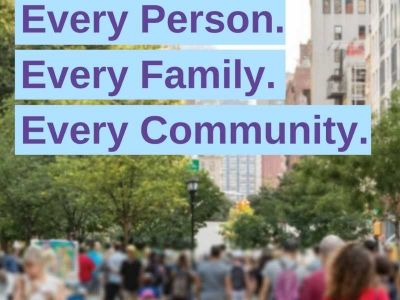Sep 28th, 2022
Started in 1989, National Recovery Month (Recovery Month) is a national observance held every September to promote and support new evidence-based treatment and recovery practices, the nation’s strong and proud recovery community, and the dedication of service providers and communities who make recovery in all its forms possible.
Why this matters? All Americans are impacted.
1 in 5 adults in the U.S. experience mental health challenges in any given year
1 in 7 individuals experience addiction at some point throughout their lifespan
1 in 2 individuals know someone impacted by addiction
8% of the US population identify as a person in recovery from a drug/alcohol use problem
13% of the US population identify as a person in recovery from a mental health issue
The Substance Abuse and Mental Health Services Administration (SAMHSA) has made significant impact in fighting this nation's growing crisis of substance misuse and overdose deaths. They aim to increase public health awareness surrounding mental health and addiction recovery.
"Looking beyond our individual experiences strengthens and supports recovery in all its forms... As we grow in empathy and understanding, we save lives by adding protective factors and building resiliency"
-NationalRecoveryMonth.org
It starts with conversations. One of the first and most important steps you can take is to start the conversation and create a safe space where your loved ones who struggle with alcohol or drugs can feel comfortable talking about their experience.
Conversations
Alcohol
It takes courage to talk to a family member or friend about a drinking problem, but MyHealthfinder from the Office of Disease Prevention and Health Promotion (OASH) is here to help with these Alcohol Use: Conversation Starters.
- Be prepared
- Keep it positive
- Get specific
- Offer support
- Make a plan together
- Get help
Drugs
Having a conversation about getting help can make a big difference for someone you know who is struggling with drug misuse. For more about the tips below, visit Drug Misuse: Conversation Starters.
- Be honest about how you feel
- Remind them things can get better
- Offer to help
Children
Also remember about conversations that start early. Contrary to common belief, research shows that kids do listen to their parents. In fact, children who learn about drug risks from their parents are less likely to start using drugs. To learn more about the following tips, visit Talk to Your Kids About Tobacco, Alcohol, and Drugs.
- Talk with your children early and often
- Teach your child the facts
- Set clear rules for your child
- Help your child learn how to say "no"
- Set a good example
- Get help (if you need it)
It ends with recovery. The road to recovery can feel lonely, but it's important for people to know that they are not alone. One path may look different than others but recovery is possible and help is available. This Recovery Month, let's together support every person, every family and every community.
Source: MyHealthfinder (USDHHS & OASH), SAMHSA, nationalrecoverymonth.org

